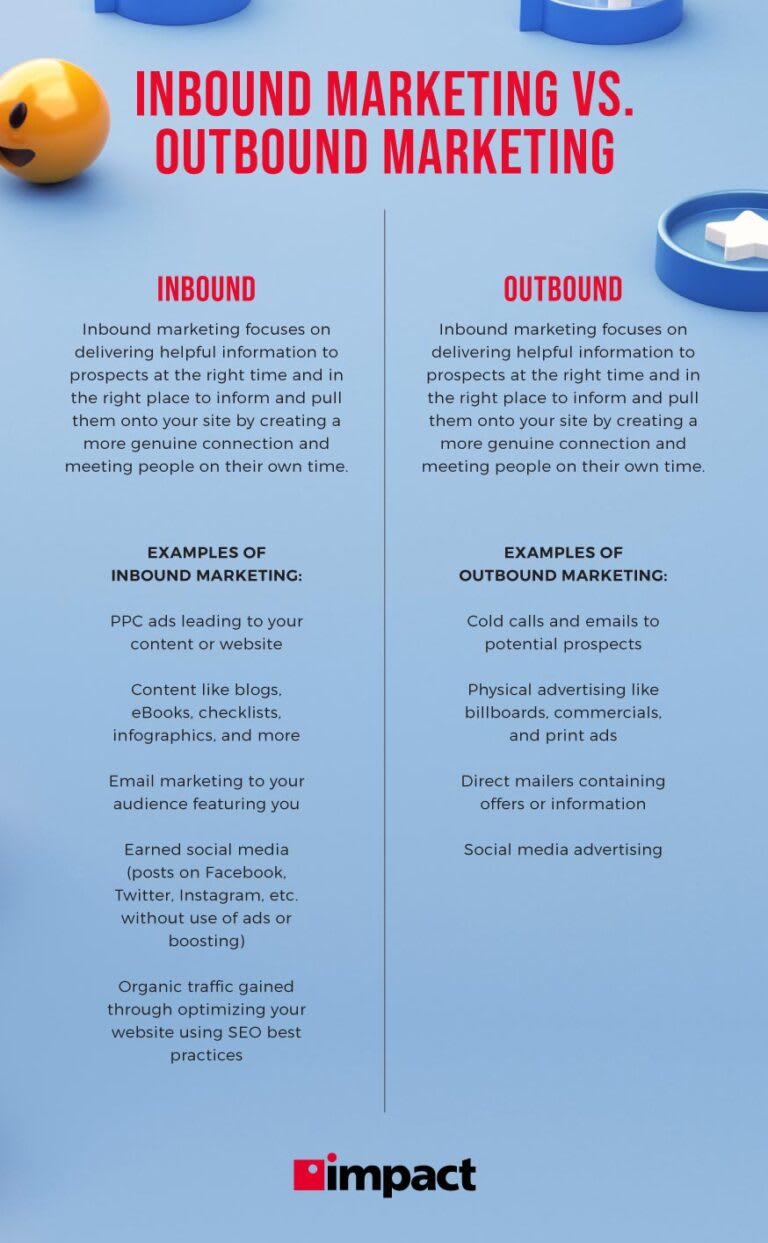Are you looking to expand your marketing outreach and unsure whether to go local or global? Understanding the differences in outbound marketing strategies for local and global reach is crucial to effectively targeting your audience and achieving the desired outcomes.
Outbound marketing for local vs. global reach involves tailoring marketing campaigns to suit local cultural norms and sensitivities for local reach, and crafting generalized marketing materials for a global target audience. By focusing on local eCommerce marketing tactics, businesses can maximize results in their immediate vicinity, while global marketing allows businesses to target customers worldwide.
Ready to dive deeper into outbound marketing strategies? Continue reading to find out how to reach your customers, whether they are in your neighborhood or on the other side of the globe.
Local Ecommerce Marketing Tactics
The primary goal of local marketing is to target potential customers within a specific geographical area. To effectively tap into the local market, businesses should focus on implementing a variety of local eCommerce marketing tactics. By understanding the local market and prioritizing cultural nuances, businesses can increase their visibility and foster customer loyalty.
Identify market need and target market research
To successfully execute local marketing campaigns, businesses must first understand the needs and preferences of their target market, paying close attention to cultural norms and sensitivities. Thorough target market research can help businesses create tailored campaigns that resonate with local consumers and encourage them to engage with their products or services. Conducting focus groups, surveys, or social media analysis can provide insights into the local market demand, enabling businesses to craft marketing strategies that cater specifically to that audience.
Localized marketing campaigns
Maximizing the results of marketing efforts requires crafting messages that are relevant to the local audience and abide by their cultural norms. This includes translating marketing materials into the local language and considering cultural references that are pertinent to the target market. According to a study from Loomly, a more focused approach to targeting and messaging for local marketing can prove to be more effective than generic, global campaigns.
Outbound marketing strategies tailored for local businesses
Outbound marketing, which involves reaching out to potential customers via direct mails, local advertising, telemarketing, and trade shows, can be a powerful tool for local businesses to make their presence known. For example, businesses can create targeted direct mail campaigns or partner with local newspapers and radio stations for promoting their products or services. These strategies can help businesses increase their local visibility and establish themselves as a reliable option for consumers in the area.
Leveraging local SEO and listings
Local SEO and listings on platforms like Yelp and Bing Places can significantly boost a business’s online visibility in its targeted geographical area, leading to increased local website traffic and potential customer engagement. By optimizing their website for local search, businesses can ensure that they appear at the top of relevant search results, attracting the attention of prospective customers. Regularly updating and maintaining accurate information across popular online directories also helps improve credibility and trust among local consumers.
Challenges and Solutions for Local Outbound Marketing
Local outbound marketing has its share of challenges, but businesses can overcome these obstacles by employing strategic approaches to target and engage their local customers effectively.
Budget constraints and measuring ROI
Maintaining consistent visibility with a focus on cost-effective methods is a significant challenge faced by local businesses with limited marketing budgets. To address this issue, businesses can adopt strategies such as allocating their budget wisely across different marketing channels and focusing on inexpensive yet effective techniques like email marketing and targeted social media advertising. It’s also crucial to regularly measure the ROI of their efforts and continually optimize their campaigns.
Overcoming audience resistance to traditional advertising
As consumers increasingly prefer ad-free content, local businesses must strive to make their marketing tactics less intrusive and more relevant. Utilizing content marketing techniques, such as creating informative articles, engaging blog posts, and useful guides, can help businesses attract and retain customers without bombarding them with overt advertisements.
Navigating cultural sensitivities
Ensuring marketing materials align with local customs and norms is essential for businesses targeting a specific geographical region. Investing time and resources into understanding the local culture can help businesses strike the right chord with their target audience, fostering trust and loyalty.
Keeping up with changes in consumer behavior
As consumer preferences evolve, so too must a business’s marketing tactics. By staying informed about changing trends in their local market, businesses can adapt their strategies accordingly and continue to engage with their target audience effectively. For instance, businesses could explore the potential of emerging social media platforms or leverage popular local influencers for increased brand visibility.

Source: Smith.ai
In conclusion, when targeting local markets, businesses must invest time and effort into understanding their target audience’s preferences and cultural nuances. By tailoring marketing campaigns according to local sensibilities, leveraging local SEO and listings, and overcoming the challenges associated with traditional advertising, businesses can maximize their local outreach and boost their overall marketing effectiveness.
Mastering these local outbound marketing strategies will not only empower your business to attract more customers within your immediate vicinity but also provide a strong foundation for eventually expanding your reach to a global audience. In a world where global marketing continues to dominate, your ability to stand out on a local level can put you ahead of the competition and lead to long-term, sustainable success.
Global Ecommerce Marketing Essentials
Outbound marketing for global reach generally involves crafting generalized marketing materials, often written in English. These campaigns are aimed at catering to a target audience no matter where they’re located. In this section, we’ll discuss the essential components of global marketing and how to ensure success in reaching international customers.
Understanding global marketing for eCommerce
The primary objective of global marketing is to appeal to a broader audience spread across various countries and continents. This requires creating marketing campaigns that communicate effectively with different cultures while maintaining a consistent brand identity.
It’s important to strike a balance between tailoring your campaigns for specific locations, while avoiding the pitfalls of locality-specific jargon or images that may not resonate with everyone. You want your global campaigns to be easily understood by your target audience, even if they aren’t native English speakers.
Tailoring global campaigns without losing brand identity
When making minor modifications to your campaigns for global audiences, it’s essential not to lose sight of your core brand values and identity. Adapt your messaging to include local language translations and cultural references to ensure your global campaigns are both relevant and relatable to your audience.
Remember that your global campaigns should consistently reflect your brand’s messaging, tone, and visual identity across all regions. This way, your customers will recognize your brand no matter where they are in the world.
Statistical insights for global vs. local campaigns
Data-driven decision-making is vital in choosing between local and global marketing strategies. According to Lingble, global marketing tends to cater to larger audiences and may have a higher return on investment than local marketing. However, the cost per impression or conversion may be higher for global campaigns due to the need for translation services and other localization efforts.
Understanding your target audience’s preferences can help inform decisions on whether to focus marketing efforts more locally or globally. Consider factors such as your company’s reach, sales performance in specific regions, and potential for growth in international markets.
Scaling marketing tactics from local to global outreach
Leveraging successful local campaigns for a global audience can be an excellent strategy for businesses looking to scale their marketing efforts. Carefully analyze your well-performing local campaigns for elements that can easily be translated or modified for broader outreach. You can then adapt localized keywords, ad positioning, and other factors as needed to ensure your message resonates with a global audience.
Challenges and Adaptations in Global Marketing
Implementing global marketing campaigns presents unique challenges that businesses must overcome to ensure success. In this section, we’ll dive into some of the most common challenges and explore strategies to adapt your marketing efforts accordingly.
Language barriers and the need for translation
One of the most significant challenges in global marketing is overcoming language barriers. Hiring native speakers or localization experts can help ensure your marketing material is accurately translated and resonates with your target audience. Additionally, adapting your website and other digital platforms for various languages can create a more accessible experience for international customers.
Navigating international market regulations
Ensuring compliance with international market regulations is essential when adapting your marketing materials for different regions. Be aware of local advertising standards, practices, and legal requirements. Working with local experts or legal counsel can help ensure your promotional material adheres to local regulations, protecting your business from potential legal issues.
Customizing content for international platforms and channels
Another challenge in global marketing is adapting your content for different international platforms and channels. Research popular social media platforms, search engines, and online marketplaces in your target region to ensure your marketing efforts are aligned with the local media landscape. This might involve adapting your content to suit specific platform formats and restrictions.
Analyzing and overcoming the generic nature of global content
Global marketing materials often carry the risk of being too generic to be engaging. It’s crucial to analyze your campaigns’ performance continually and make adjustments as needed to ensure the content remains relevant to your audience. Leverage data and customer feedback to refine your messaging, visuals, and language for maximum engagement and impact.
Frequently Asked Questions
What are the primary differences between local and global outbound marketing tactics?
Local outbound marketing focuses on targeting customers in a specific region, usually in the local language and with cultural nuances in mind. Global outbound marketing seeks to engage a broader audience across various countries and continents, often using English as the primary language and with a more generalized approach.
How can I determine whether to focus my marketing efforts on local or global campaigns?
Consider factors such as your company’s current reach, sales performance in specific regions, and potential for growth in international markets. Analyzing this data can help inform your decision to focus on local or global marketing efforts.
What are some strategies to overcome language barriers in global marketing?
Hiring native speakers or localization experts can help ensure accurate translations of your marketing materials. You can also adapt your website and digital platforms to cater to multiple languages, making your content more accessible to international audiences.
How can I ensure my global marketing campaigns comply with local regulations?
Research local advertising standards, practices, and legal requirements for each region you target. It might be helpful to work with local experts or legal counsel to ensure your promotional materials adhere to local regulations.
What is the best way to adapt local campaigns for a global audience?
Analyze your successful local campaigns for elements that can easily be translated or modified for broader outreach. Adapt localized keywords, ad positioning, and other factors as needed to resonate with a global audience, while maintaining a consistent brand identity.


